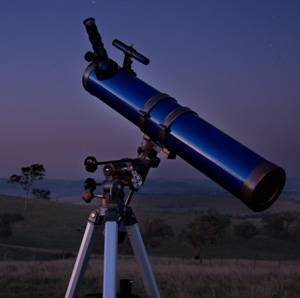This article is a preview from the Winter 2019 edition of New Humanist
You are born 100 per cent human but die 50 per cent alien. That’s because half the cells in your body do not belong to you. This fraction was thought to be as high as nine tenths until a recent study scaled it down. Nevertheless, the realisation that 50 per cent of the cells in your body are not yours – around 38 million million of them – is a quite remarkable thing.
Some of the foreign cells hitching a ride on you are fungi, some are bacteria. And many of them perform important functions that your own cells cannot. For example, if it were not for the hundreds of species of bacteria living in your stomach, you would be unable to effectively extract nutrients from your food. This is why if you take antibiotics you can end up with diarrhoea. Being indiscriminate in their action, antibiotics kill not only disease-causing bacteria but also the “good” bacteria essential for your survival.
Despite the fact that bacteria exist in the human body in comparable numbers to home-grown cells, they account for only about 1.5 kilograms of the mass of a 70-kilogram person. This is because bacteria are much smaller than human cells. A typical bacterium placed next to a large human cell would look like a flea beside a cat.
Alien bacteria protect you from illness by filling niches in your body that otherwise might be filled by disease-causing “pathogens”. In 2007, the US government began a study to try and identify all the foreign microorganisms in the human body and figure out what they do – a gargantuan task. When the results of the Human Microbiome Project were published in 2012, they revealed that there are more than 10,000 species of alien cells in your body – 40 times the number of cell types that belong to you.
In fact, every square centimetre of your skin is home to about 5 million bacteria. That is about 500 in every patch the size of a pin-head. The most densely populated regions of your skin are your ears, the back of the neck, the sides of the nose and your belly button. What all these alien bacteria are doing is, by and large, a mystery. Take, for instance, bacteria in your nose. The Human Microbiome Project was unable to determine what 77 per cent of the species that live there are doing. In fact, it found that the nasal passages of 29 per cent of people contain Staphylococcus aureus – more popularly known as the MRSA superbug. If you find it alarming that roughly one in three of your friends and family have nostrils filled with MRSA, bear in mind that such bacteria are dangerous only in sick people, whose immune systems are weakened. MRSA is principally a problem for people in hospitals because hospitals, by definition, contain sick people. However, in normal, healthy people, with robust immune systems, such bacteria are kept in check and are completely harmless.
There is mounting evidence that an imbalance of the human microbiome may be a significant factor in causing a wide range of diseases. These include inflammatory bowel conditions such as Crohn’s disease and ulcerative colitis. There is evidence that people with such diseases have a less diverse population of bacteria in their gut. However, nobody knows the precise mechanism by which the microbiome impacts these diseases. There is even a more controversial claim that imbalances of the human microbiome play a role in diseases that affect our mental health such as depression and schizophrenia. Again, the mechanism is not known.
So where do all these foreign microorganisms come from? Well, nobody is born with a full complement of them. Instead, they are acquired after birth, from a mother’s milk and from the environment. All are pretty much in place by the time you are three years old. This is why it is possible to say that you are born 100 per cent human but die 50 per cent alien.
Actually, it is worse than this. The Human Microbiome Project estimated that the body contains at least 10,000 species of bacteria. The DNA of each of these species has a unique sequence of “genes”, each of which codes for a protein, a Swiss-army-knife molecule with a specific purpose. The Human Microbiome Project added these up and concluded that the human body contains about 8 million genes belonging to bacteria. By contrast, the human genome contains a mere 24,000 genes. Consequently, there are about 400 times as many microbial genes exerting their effect on your body as human genes. Or, to put it another way, 99.75 per cent of the DNA in your body does not belong to you. In a sense, you are a mere 0.25 per cent human. Perhaps it is more truthful to say that you are born 100 per cent human but die 99.75 per cent alien!

